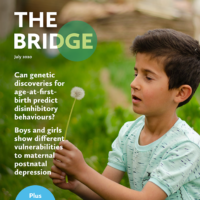Search results
-

Long-term youth suicide prevention programs can have sustained effects
The Garrett Lee Smith (GLS) Memorial Suicide Prevention Act was passed in 2004 to address the public health issue of suicide in the USA. Since then, numerous programs have been funded via the GLS program to provide comprehensive, community-based suicide prevention programs to adolescents and emerging adults aged 10-24 years.
Read more -

Family-focused CBT is not superior to enhanced treatment-as-usual in reducing suicide attempts
In 2011, Esposito-Smythers et al. reported that integrated outpatient cognitive-behavioural therapy (I-CBT) significantly reduced substance use, suicidal behaviours, and the rate of health service use compared with enhanced treatment-as-usual (E-TAU) in adolescents with co-occurring alcohol or drug use disorder and suicidality.
Read more -

DBT is effective for youth with high levels of emotion dysregulation
In 2019, Molly Adrian and colleagues examined the predictors and moderators of treatment outcomes for suicidal adolescents who participated in a randomized controlled trial evaluating Dialectical Behaviour Therapy (DBT) versus Individual/Group Supportive Therapy (IGST).
Read more -

Childhood maltreatment increases suicide risk despite strong neuropsychological functioning
A cross-sectional and prospective study recently examined the independent effects of childhood maltreatment, neuropsychological functioning, and psychopathology, and their potential interactions with suicidal behaviour.
Read more -

Social connectedness is a protective factor against short-term suicide attempts (post discharge) in school children
Researchers in the USA have performed a multi-site, prospective analysis of >2,000 adolescents aged 12-17 years to try to determine the short-term predictors of suicide attempts within 3-months of an emergency department visit. The study population was enriched to include a high proportion of adolescents at risk for suicide attempts.
Read more -

In Conversation… Self-Harm
A specialist in self-harm and suicide, Dr Dennis Ougrin emphasises the importance of early intervention and prevention, as well as the potential of Therapeutic Assesssment, a novel model of assessment for young people with self-harm ahead of his upcoming Self Harm Masterclass.
Read more -

Commentary: Self-harm: a global health priority – reflections on Brunner et al. (2014)
The accompanying cross-sectional study by Brunner et al. (2014) investigates the prevalence and correlates of self-injury in adolescents. It is one of the largest epidemiological studies of its kind published to date.
Read more -

CAMH Editorial: Volume 26, Issue 4, November 2021
Supporting children and young people (CYP) who self-harm (SH) is an important work of Child and Adolescent Mental Health Services (CAMHS). This theme is reflected throughout this issue.
Read more -

ADHD, Self-Harm, and the Importance of Early Childhood Intervention – In Conversation with Dr. Melissa Mulraney
In this podcast, we talk to Dr. Melissa Mulraney, Senior Lecturer and co-leader of the Child Mental Health Research Centre at the Institute for Social Neuroscience in Melbourne, Australia, Honorary Research Fellow at the Murdoch Children’s Research Institute in the Department of Paediatrics at the University of Melbourne, and Associate Editor of CAMH.
Read more -

July 2020 – The Bridge
In this issue, we summarise recent studies on a wide range of topics – including sleep, sensory symptoms, emotional symptoms, disinhibition, alcohol misuse, complex PTSD symptoms, and self-harm – which reveal new insights helping us to better understand and address psychopathology in young people.
Read more